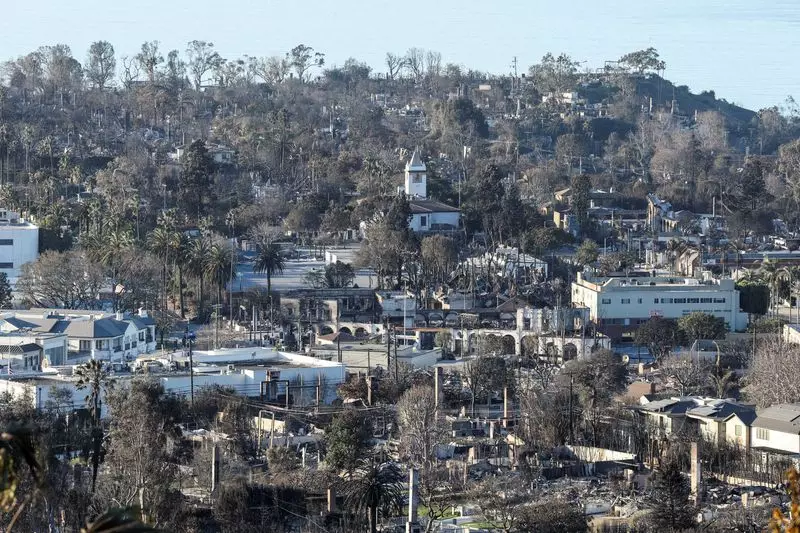The recent wildfires that ravaged Los Angeles have sparked heated political discourse surrounding disaster relief and accountability. In the wake of the devastation, which resulted in the tragic loss of 24 lives, leading Republicans in Congress are contemplating imposing conditions on financial assistance meant to aid affected communities. The inflammatory rhetoric from President-elect Donald Trump, who has criticized the handling of resource management by state and local officials, has fueled the GOP’s agenda to scrutinize disaster relief.
In statements made by House Speaker Mike Johnson, it was indicated that the Republican leadership in Washington believes that there was a significant mismanagement by California officials regarding both water resources and forest management prior to the outbreak of the wildfires. This perspective suggests a broader narrative where accountability becomes intertwined with the provision of aid, positioning the federal government’s support as conditional upon a perceived failure of local governance.
As Congress grapples with the allocation of disaster relief funds, the complexity of its political makeup plays a critical role. With both the House and Senate under Republican control, there is a palpable sense of urgency for party leaders to assert their influence over spending decisions. Expectations are building for the inclusion of “strings” attached to disaster assistance, as articulated by Senate Republican John Barrasso, who emphasized that future aid should address preparation and preventative measures for potential disasters.
This approach invokes a delicate balance between providing necessary relief to communities in distress and advocating for a political agenda that prioritizes accountability from local authorities. The GOP’s focus on requiring accountability in the face of disaster funding raises questions about the implications for future disaster responses and the inequities that may arise from politicized aid distribution.
California’s situation is particularly multifaceted due to its political landscape. While Democratic leadership has dominated both the gubernatorial and Senate positions, the state has also experienced pivotal contests for U.S. House seats that reflect a mix of party affiliations. The Republican strategy of leveraging accountability for disaster relief in a heavily Democratic state signifies a calculated tactic aimed at influencing the political discourse heading into future elections.
The idea that aid could be used as a bargaining chip complicates the immediate recovery process for communities grappling with extensive damage. Some Congressional members propose that discussions of disaster relief must be coupled with broader fiscal strategies, including raising the national debt limit. This raises concerns about whether emergency responses can remain apolitical or if they will be woven into broader partisan negotiations.
A challenge facing the disaster aid discourse is the emergence of a hardline conservative bloc within Congress, which has been staunchly advocating for budgetary offsets to any new spending initiatives. This faction’s influence could hinder timely assistance for California and potentially prolong the struggles of communities affected by the wildfires. Just last month, Congress approved significant emergency funding for other states devastated by hurricanes, showcasing the importance of bipartisanship in addressing urgent crises.
The divergent responses reflected within Congress reveal a growing ideological divide that could exacerbate the plight of communities in need. While some Republican members see California’s predominantly Democratic leadership as a justification for closer scrutiny of relief measures, this approach risks alienating citizens who are merely seeking assistance in a time of crisis.
As discussions advance regarding disaster relief for California, the ongoing interplay between political accountability and immediate recovery needs remains critical. The response to these wildfires may well serve as a benchmark for future federal assistance protocols and highlight the potential consequences of intertwining aid with political agendas. If not handled delicately, the fallout from this disaster may not only affect the affected areas but could also reverberate throughout the broader American political landscape, shaping strategic alignments leading into upcoming elections. The imperative lies in crafting a path that prioritizes recovery while fostering responsible governance and transparency to ensure that aid serves its intended purpose—helping communities rebuild in the aftermath of catastrophe.

